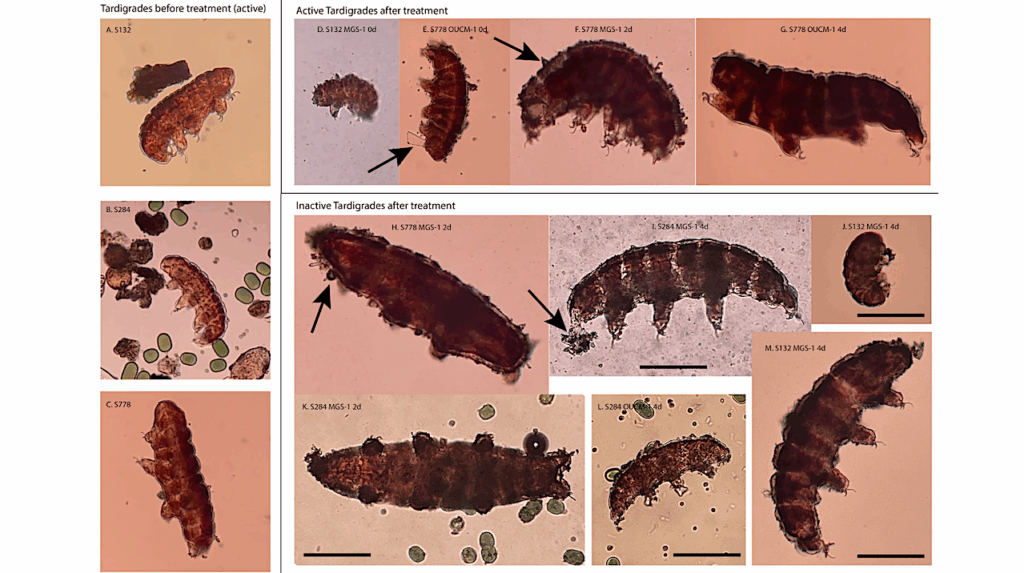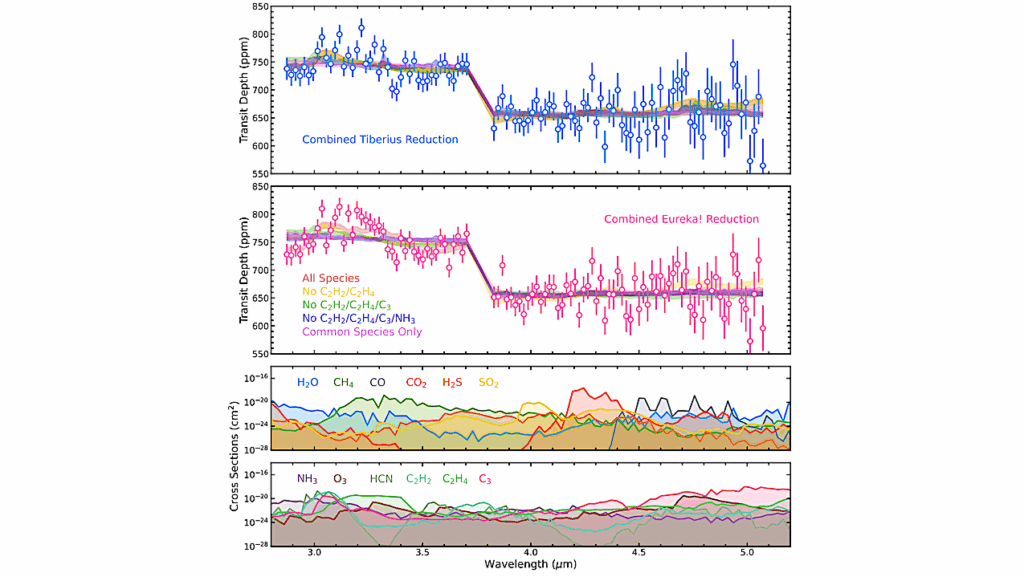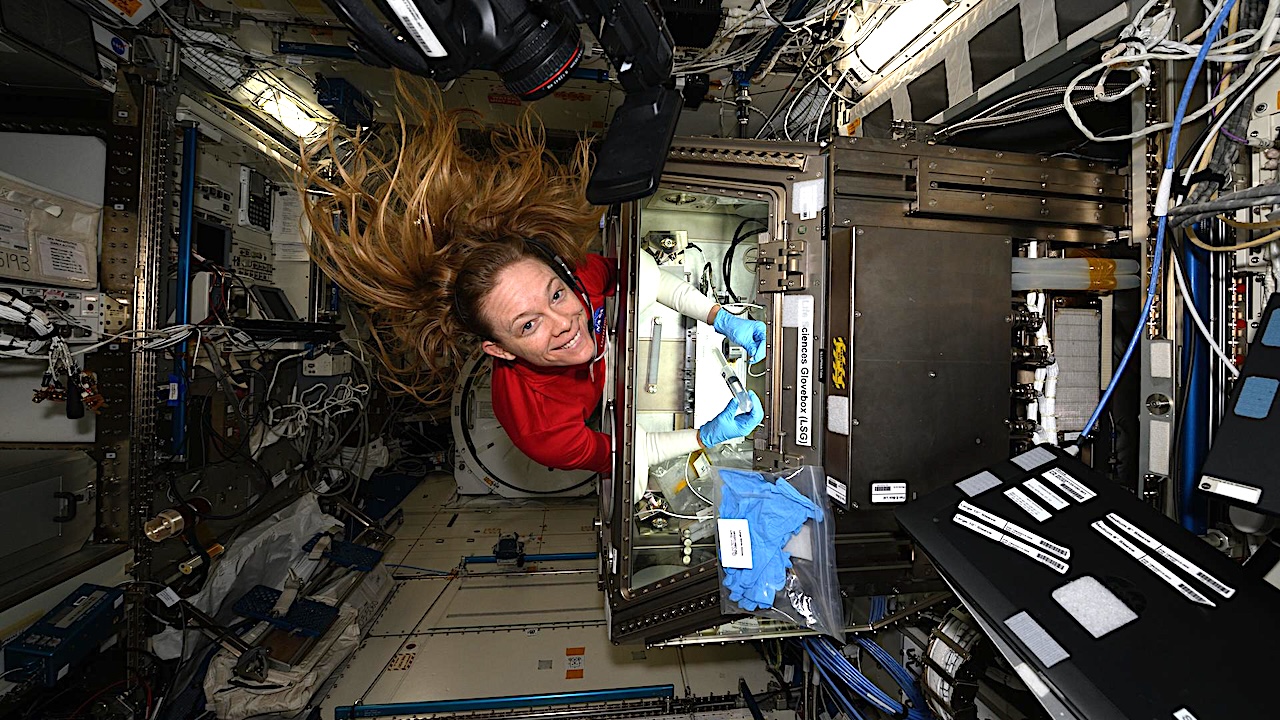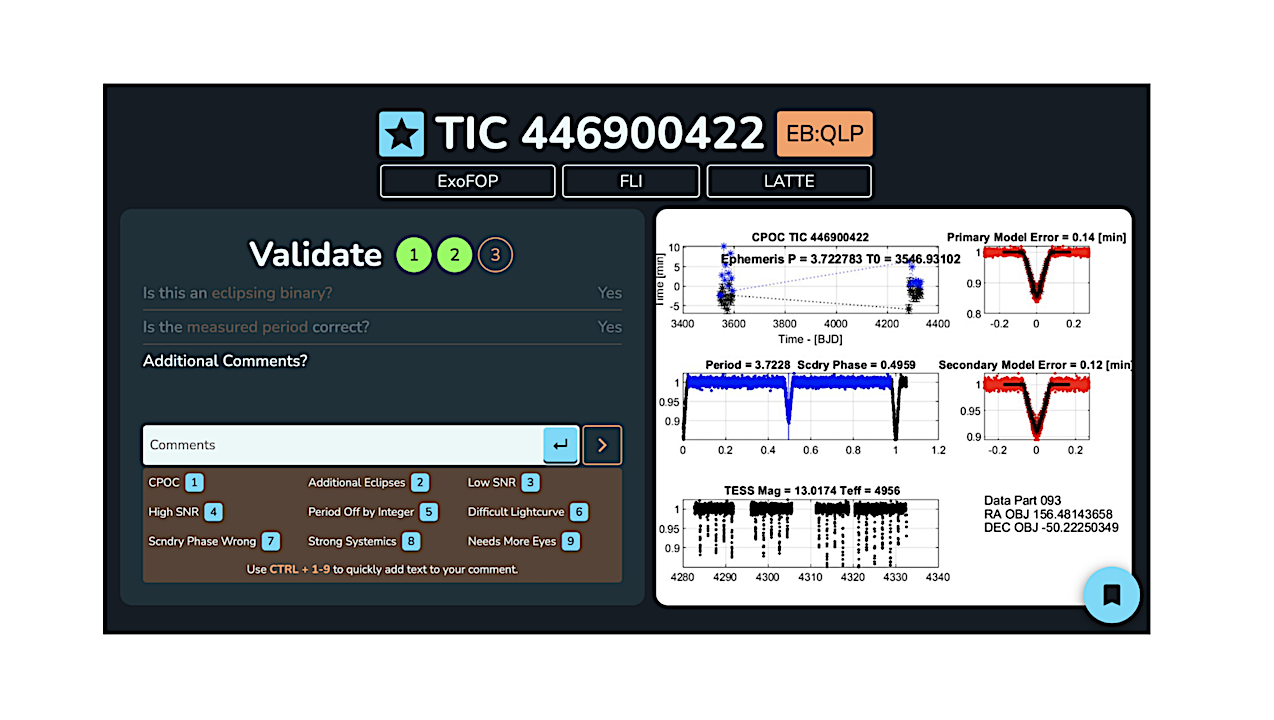Now Reading: Martian Samples, Hazards, And Biosecurity: Between Science And Bioethics
-
01
Martian Samples, Hazards, And Biosecurity: Between Science And Bioethics
Martian Samples, Hazards, And Biosecurity: Between Science And Bioethics
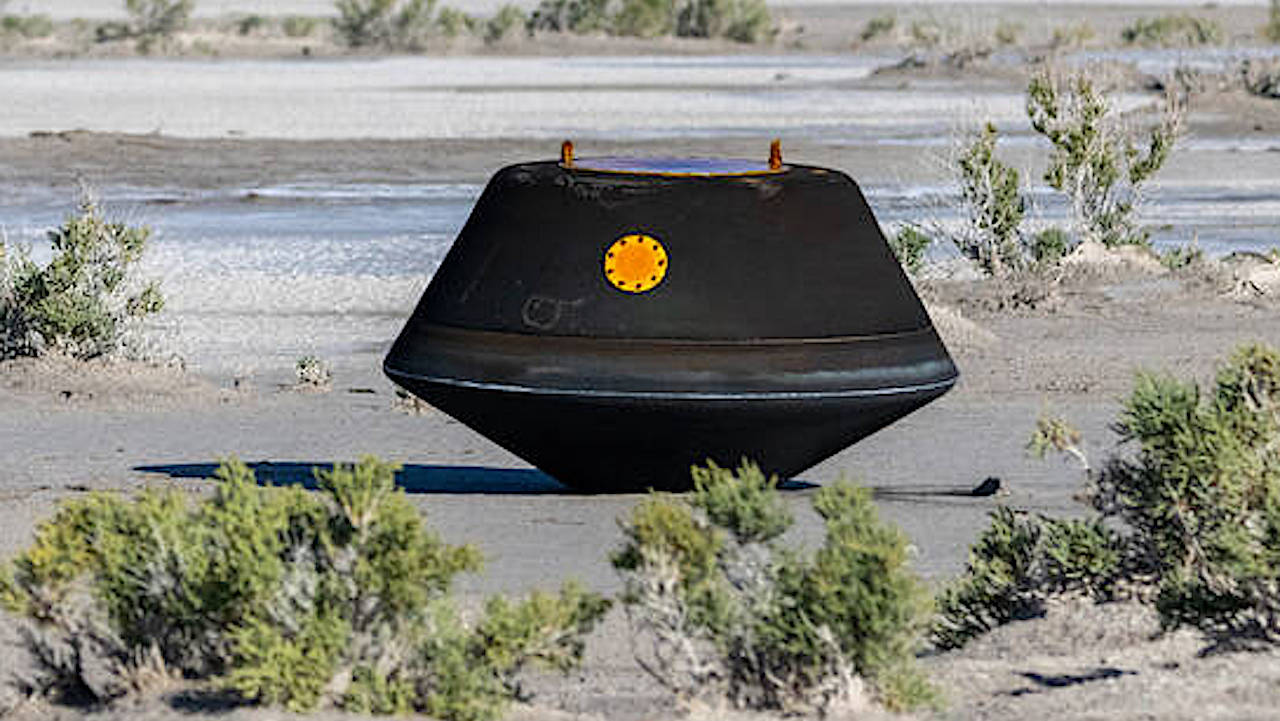

The sample return capsule from NASA’s OSIRIS-REx mission is seen shortly after touching down in the desert, Sunday, Sept. 24, 2023, at the Department of Defense’s Utah Test and Training Range.
The fact that life-pastor present-has not been detected on Mars does not mean that it does not exist there. Indeed, the article is quite precise in highlighting that “a special follow-on concern to the case of forward contamination is that of round-trip contamination, the “discovery” of living organisms within or on a vehicle returning from Mars”.
However, in the opinion of the authors of this correspondence, it would be essential to explicitly comment on the return of the samples collected by the Mars 2020 Perseverance Rover contains the risk of transporting previously unidentified microorganisms to the Earth’s surface.
Therefore, MSR planning must seriously consider this possibility, for at least two reasons: scientific, given the gaps in knowledge and the consequent uncertainty about the potential existence of Martian life forms; and bioethics when considering the applicability of the ethical principles of precaution — due to current doubts-and protection-when recognizing human responsibilities regarding potential terrestrial contamination by nonindigenous microorganisms.
The scientific debate on the inadvertent transfer of poten-tial microbial forms from Mars to Earth is essential, consid-ering the risks and biosafety, as the consequences could be harmful, but it is recommended that fundamental bio ethical aspects are always spotlighted in articles that pro-pose to discuss the issue.
Martian samples, hazards, and biosecurity: Between science and bioethics, PNAS via PubMed (open access)
Astrobiology
Stay Informed With the Latest & Most Important News
Previous Post
Next Post
Previous Post
Next Post
-
 01Two Black Holes Observed Circling Each Other for the First Time
01Two Black Holes Observed Circling Each Other for the First Time -
 02From Polymerization-Enabled Folding and Assembly to Chemical Evolution: Key Processes for Emergence of Functional Polymers in the Origin of Life
02From Polymerization-Enabled Folding and Assembly to Chemical Evolution: Key Processes for Emergence of Functional Polymers in the Origin of Life -
 03Astronomy 101: From the Sun and Moon to Wormholes and Warp Drive, Key Theories, Discoveries, and Facts about the Universe (The Adams 101 Series)
03Astronomy 101: From the Sun and Moon to Wormholes and Warp Drive, Key Theories, Discoveries, and Facts about the Universe (The Adams 101 Series) -
 04True Anomaly hires former York Space executive as chief operating officer
04True Anomaly hires former York Space executive as chief operating officer -
 05Φsat-2 begins science phase for AI Earth images
05Φsat-2 begins science phase for AI Earth images -
 06Hurricane forecasters are losing 3 key satellites ahead of peak storm season − a meteorologist explains why it matters
06Hurricane forecasters are losing 3 key satellites ahead of peak storm season − a meteorologist explains why it matters -
 07Binary star systems are complex astronomical objects − a new AI approach could pin down their properties quickly
07Binary star systems are complex astronomical objects − a new AI approach could pin down their properties quickly













